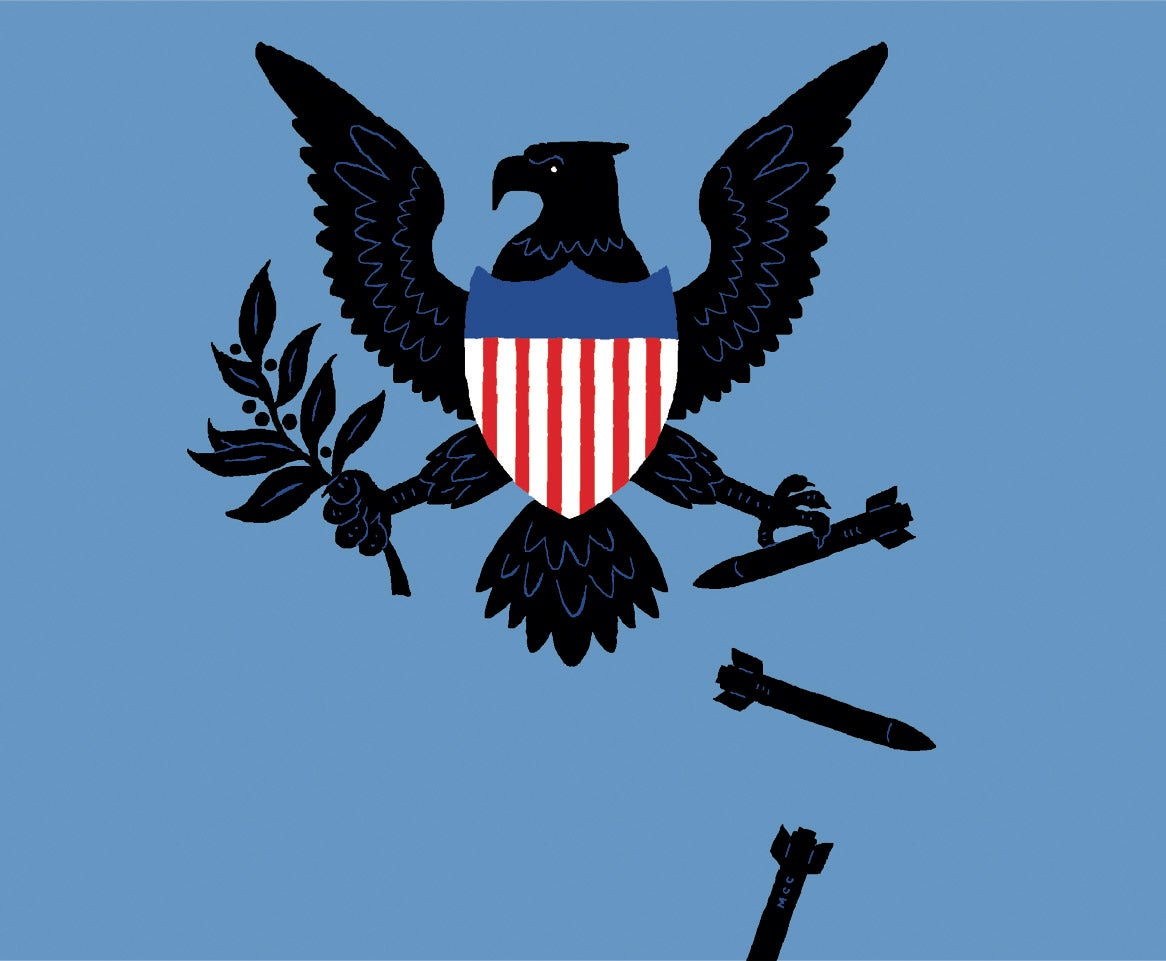The post-9/11 war on terror was only 3 years old when David Barron ’94 began researching whether presidents enjoy as much unfettered power to conduct wars as was assumed by many at the time.
The question soon became more than academic for Barron, then a Harvard Law professor who took a leave to help lead the Justice Department’s Office of Legal Counsel at the start of the Obama administration. The thorny issues he addressed included whether the U.S. military could target a U.S. citizen in a drone strike abroad.
A dozen years after he began, Barron, now a judge on the U.S. Court of Appeals for the 1st Circuit and a visiting professor at HLS, has published the results of his research in a book titled “Waging War: The Clash Between Presidents and Congress 1776 to ISIS” (Simon & Schuster).
The book has already won the 2017 William E. Colby Award, which honors a “major contribution to the understanding of military history, intelligence operations or international affairs.”
“It’s an extraordinary book and a really rich and nuanced portrayal of the separation of powers as lived on the ground over time,” said Daphna Renan, assistant professor at Harvard Law School, who served in the Office of Legal Counsel and last fall hosted Barron’s campus book talk.

Barron, who spent 14 years on the HLS faculty, first shared his findings in two seminal Harvard Law Review articles co-written with Martin Lederman, a Georgetown University law professor and his deputy at OLC.
Barron said he purposely decided to write the book as a narrative, laying out the flash points and main characters in the conflict between Congress and commanders in chief.
“I thought it would be important for lay readers, nonlawyers, to be able to understand that history, which I don’t think had been fully told,” Barron said. “Also, I got less interested in the legal answer and more interested in the practice of how presidents and their legal advisers manage and cope with the dilemmas that emerge in the run-up or during war, when Congress, rather than being silent, make their voices heard.”
He begins with Gen. George Washington’s decision to adhere to the wishes of the Continental Congress, opting not to burn down New York City in the face of the advancing British Army in the summer of 1776.
He ends with a brief first-person account of his own time in the Justice Department advising President Obama ’91. On his first day on the job, Barron discovered a then-still secret memorandum left by his predecessor in a plain manila envelope. The memorandum disavowed a series of legal opinions issued after 9/11 that laid out a particularly aggressive allocation of war-making authority to the president at the expense of Congress. Barron found a “surprisingly constant practice,” albeit one that’s sometimes breached, of presidents being wary of simply asserting unchecked power to decide how a war should be fought. At the same time, Congress is wary of giving up its right to have a say or provoking an all-out constitutional showdown.
“In some ways, it’s almost a dance with two partners in which neither one fully wants to take the lead,” Barron said. “That dynamic is a healthy one and is vital to allowing separation of powers and checks and balances to survive over centuries of conflict.”
Barron devotes only a few pages to his own 18 months at the Office of Legal Counsel, and the book isn’t intended to be about his time in office. Nevertheless, his tenure there helped provide a new perspective, and he couldn’t help but identify with some of the presidential advisers who preceded him.
“There’s a certain familiarity to seeing the lawyers confronting those questions in different eras. Those contexts are very different, laws develop in different ways, people working today have the benefit of historical outcomes that preceded them, and there’s also new pressure and a difficult legal culture and different kinds of weaponry,” Barron said. And yet, “through it all, there is a real familiarity in the kinds of time pressures those lawyers faced, questions of judgment they were required to make that made the project particularly interesting to work on.”
Barron said the war on terror remains “an unusual or distinct phase” in the nation’s history, one marked by a decade of fighting pursuant to a general authorization to use military force.
“That’s just an unusual circumstance in our history,” Barron said. “There’s no obvious end to that authorization, and yet its contours aren’t entirely clear and questions about how to conduct this conflict which have been authorized in general terms are recurrent and likely to continue to be recurrent, which makes the question of who controls the conduct of war more salient.”
Barron, who was appointed to the 1st Circuit in 2014, is reluctant to forecast how that conflict may play out in the future, given his latest role as federal judge. “One thing about being a judge: That’s not for me to make those kinds of predictions,” Barron said.
